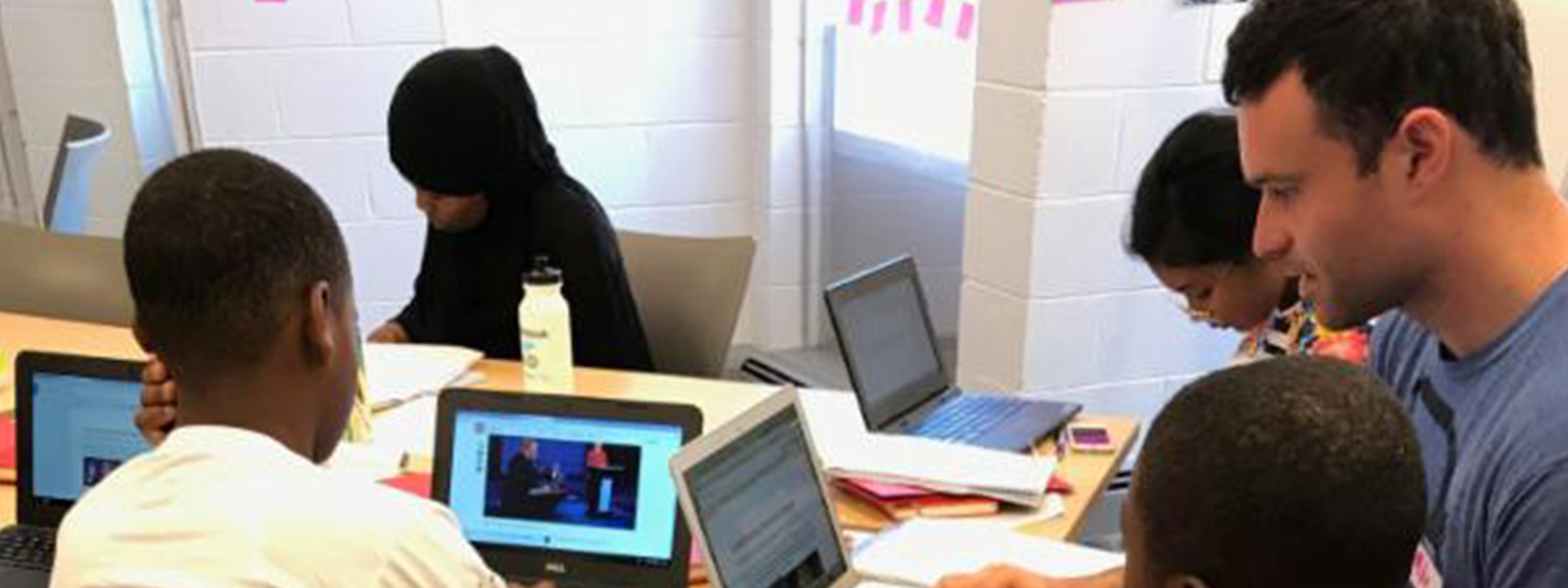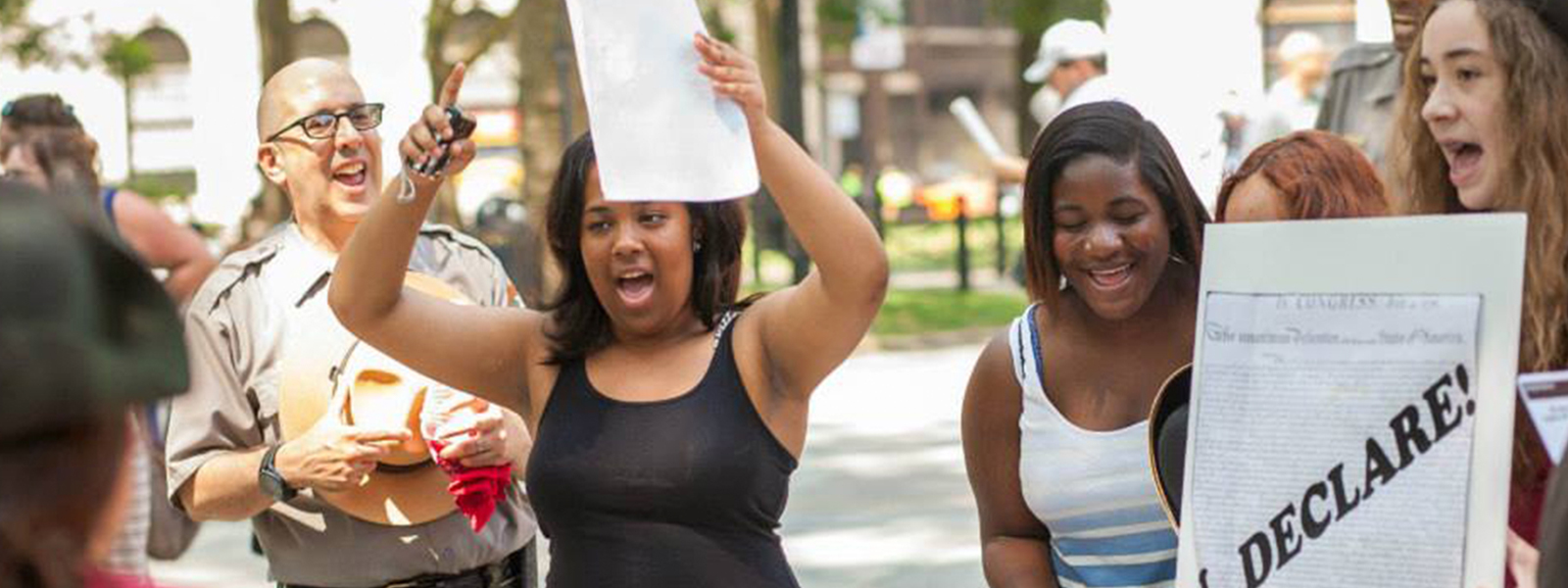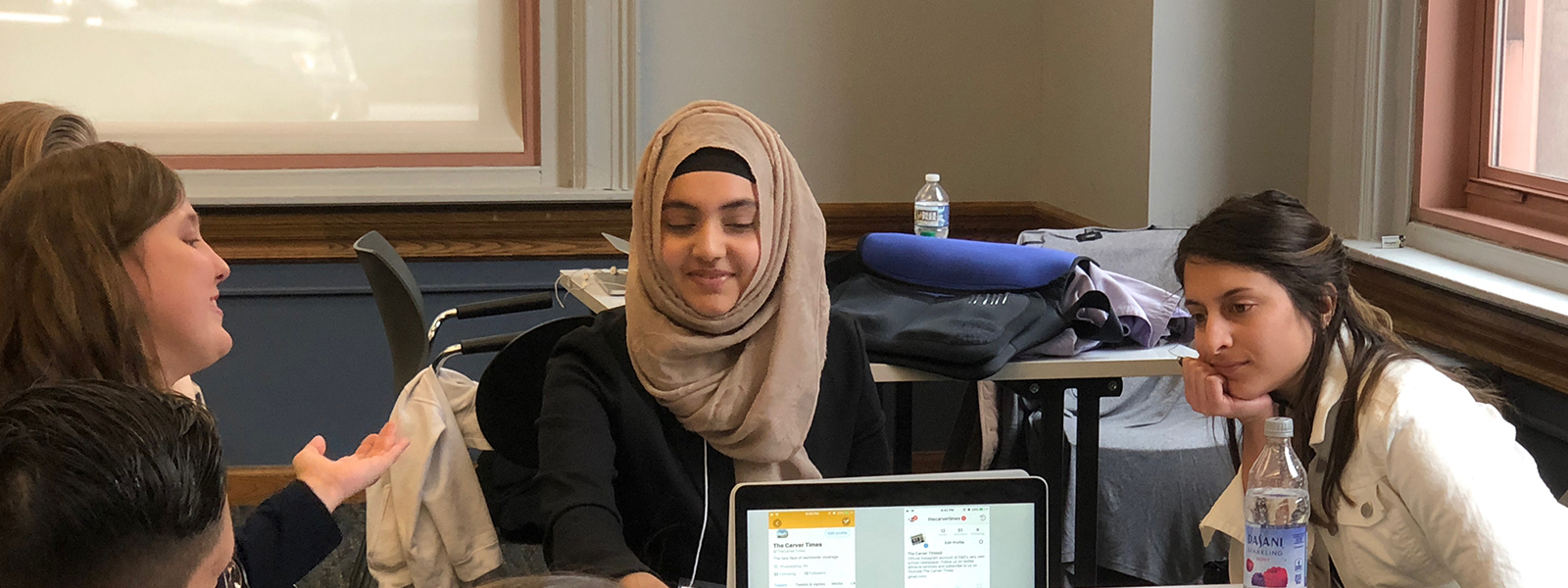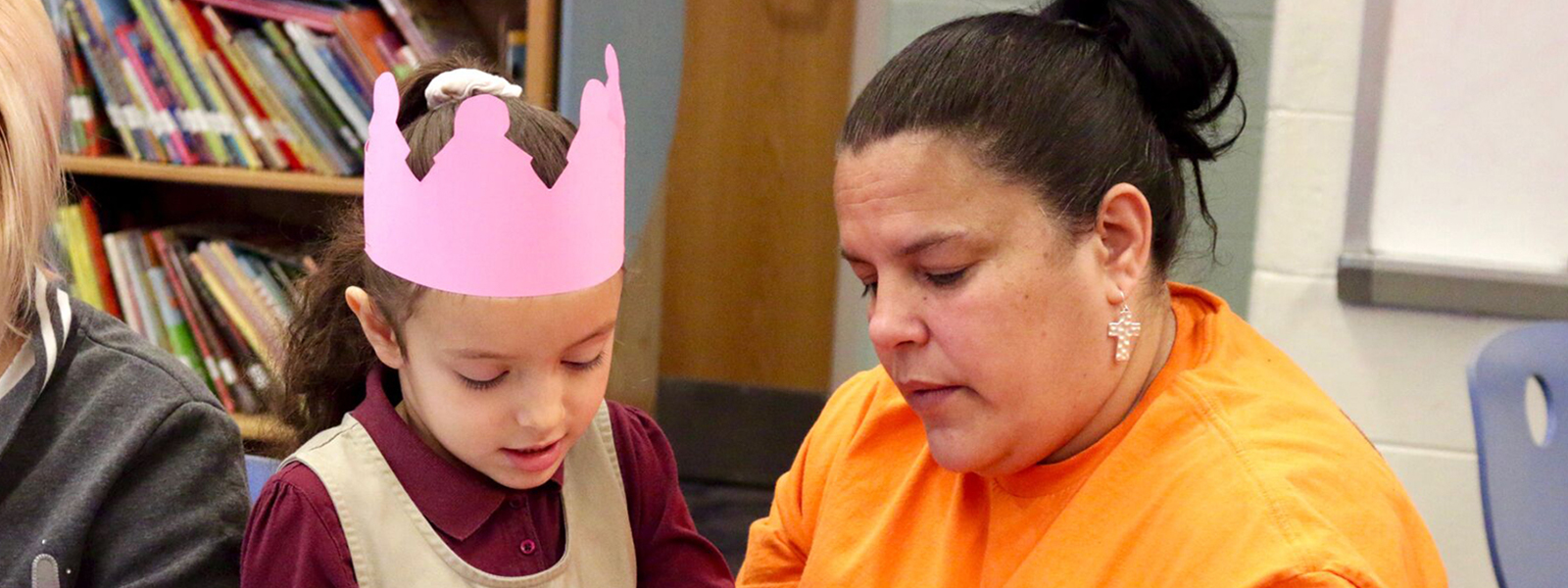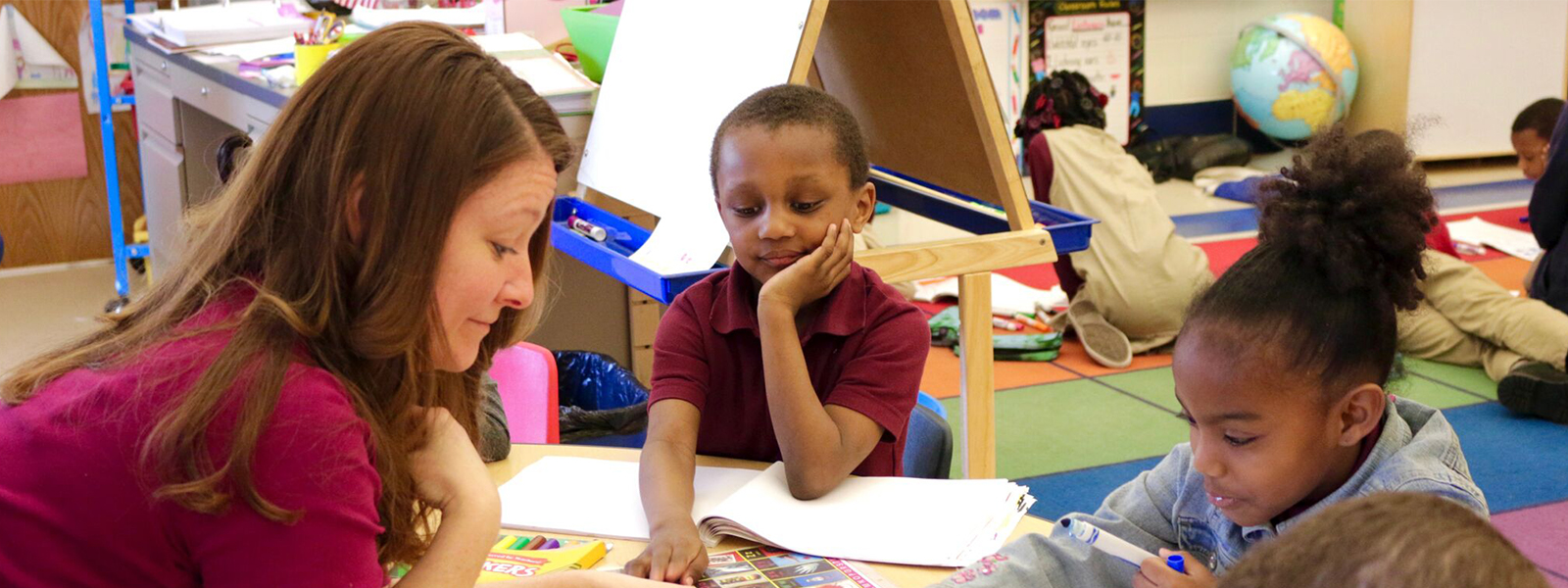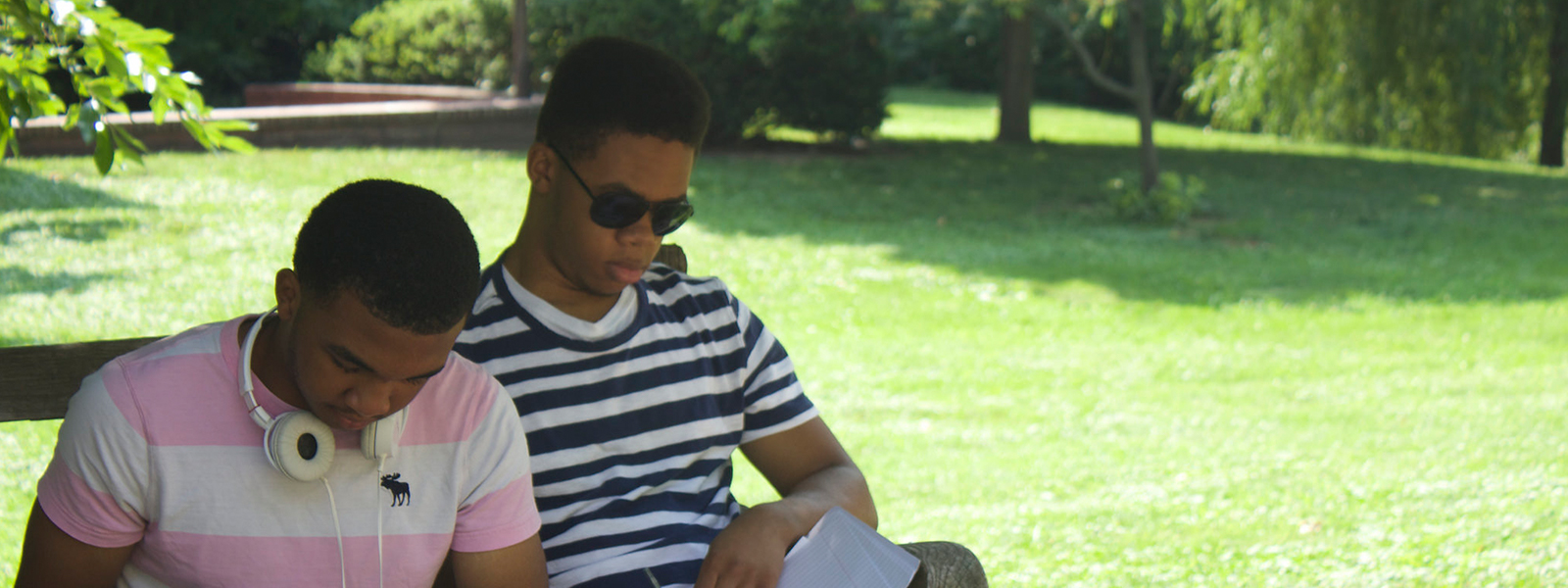For School Leaders: Professional Development Offerings
The Philadelphia Writing Project (PhilWP) has developed a wide range of professional development offerings for schools, districts, and administrators. Programs are tailored to help educators improve writing and the teaching of writing and literacy and to strengthen teacher leadership in order to effect exemplary classroom practices.
Our professional development is approved to offer Act 48 credits to all participants.All programs are uniquely designed in collaboration with school leadership teams or administrative offices and align with national, state, and local initiatives to support student achievement across the content areas.
Every workshop is developed with your school leaders to fit your specific needs.We can adapt workshops from one hour to a half day (3 hours) to a 10-15 hour series, depending on your needs.We also offer more in depth and focused institutes that span 15-30 hours, and participants may be eligible for course credits from the University of Pennsylvania.
PhilWP Professional Development Beliefs and Actions
The following beliefs serve as the foundation for PhilWP professional development programs:
- Teachers are the best teachers of teachers
- Writing and literacy are central to learning across content areas
- Professional development is an ongoing process across the life span
- All teachers should have access to quality professional development
- Successful teachers of writing are writers themselves
- Universities and schools can build powerful, lasting partnerships
- Classroom teachers and other educators are critical to meaningful change
In creating unique professional development, we build upon the following actions:
- Examining beliefs about writing and the teaching of writing
- Creating invitations to write
- Rethinking classroom
- Looking at student work
- Working with colleagues
How to Arrange Professional Development
Contact the PhilWP office to schedule a planning conference and to arrange professional development for your school.
Sample Workshops
Getting Ready for the Common Core Standards | This workshop focuses on developing and understanding strategies needed to address the new Common Core State Standards in Literacy and Mathematics using the core curriculum in grades K-8 or 9-12. This workshop supports strengthening content knowledge and aligning research-based and effective teaching practices to the new standards.
Parent – Teacher Workshop on Writing | This interactive workshop involves grade teachers and parents in the stages of the writing process. Parents and teachers will, together, draft pieces of writing in the three modes (informational, narrative and persuasive) assessed on the PSSA and use the Pennsylvania Writing Scoring Guide to think about improving student writing. In 2017-2018 and for the next three academic years, we are providing specific parent training with elementary schools that are a part of PhilWP's Kid Writing program.
Making Connections: Writing in K-12 Classrooms | This workshop pays particular attention to how writing is central to learning in the content areas.
Making Connections: Reading and Writing in the High School Classroom | This workshop focuses on cross-curricular instructional strategies as they pertain to the high school classroom in particular.
Interventions: Exploring the Writing Process in Three Modes and Strategies to Help All Students Improve Their Writing | This interactive workshop involves content area and special education teachers in the stages of the writing process as they produce and assess narrative, informational and persuasive writing for special education students.
Inquiry into Projects: Connecting Curriculum, Instruction and Assessment | To meet graduation requirements, students in grades 4, 8 and 12 in the School District of Philadelphia must be able complete a promotion or graduation project. This workshop is designed for teachers working to help students meet project goals. Teachers have the opportunity to develop their own projects and performance assessments in the context of student centered teaching and learning.
Getting a Great Start: Kindergarten through Second Grade Comprehensive Literacy | This workshop provides teachers with an opportunity to examine issues and practices related to literacy in kindergarten through second grade.
Composing in Three Modes: The Pennsylvania Writing Assessment Using Three Modes of Writing | This workshop focuses on process writing and develops strategies for improving skills and abilities described in the domains of the Pennsylvania State Scoring Guide.
Teachers and Students as Authors: Creating Writing and Reading Workshops | This workshop focuses on building a classroom community of writers and readers through Writing and Reading Workshops. Teachers learn about creating workshops by experiencing the process firsthand. Each participant is invited to create a children’s book.
Participating in the Grand Conversation: How Internet Technology can Support Teaching and Learning in Schools | This workshop acquaints teachers with how the Internet can be effectively used to support a Comprehensive Literacy Framework.
Transacting with Text throughout the Literacy Block | This workshop focuses on strategies to help surround text with opportunities to speak, write and listen in order to construct meaning during modeled, shared, guided and independent reading.
Composing Text throughout the Literacy Block | This workshop concentrates on creating opportunities and strategies for composing text during modeled, shared, guided and independent writing.
Supporting Collaborative Inquiry through Protocols | This workshop focuses on the use of protocols or structured conversations about student work as a tool for supporting collaborative inquiry and increasing student achievement.
Arts and Literacy: The Arts as a Resources for Teachers of All Subjects| This workshop invites teachers to collaborate and explore possibilities of sharing their work with the larger community, critical connections to areas of the curriculum and standards in English, language arts, history, science and social studies are made using various art forms.
Building Professional Communities of Practice Participants| This workshop works to build collegial learning communities for the improvement of student learning.
Leadership Inquiry| This workshop investigates the broad interpretations and issues around leadership. It serves to build a professional community, to unpack the terms "leader" and "leadership," and to identify some of the participants' burning questions regarding these concepts.
Arts Inquiry / This workshop provides a space for K-12 teachers in all disciplines to engage in an inquiry into how the arts can be infused into their classrooms and schools. This is an opportunity for teachers to collectively explore how their practice can transformed through art integration.
Improving ELLs Academic Writing: Building a Bridge to Success/ This workshop brings educators together to engage in collaborative inquiry that builds on questions and concerns that teachers have about supporting ELLs in their academic writing development. This workshop focuses on literacy approaches and key instructional strategies while exploring issues of writing with multicultural/multilingual students.
Sample Institutes and Courses
Writing Leadership Institute | This three-day writing institute is designed for principals and other school/district leaders. It is intended to enhance the knowledge and skills of administrators related to their own professional writing and to their leadership of elementary, middle and secondary schools where writing is integral to learning for all students and staff. A diverse institute staff including university faculty and School District of Philadelphia administrators and teachers will involve up to 30 participants in a variety of collaborative activities over a three-day period.
Writing with English Language Learners | This course is designed to deepen participants’ knowledge of the multiple roles of writing in English Language Learners’ classrooms through an exploration of literacy teaching and learning across the curriculum. Self-reflection and an inquiry approach is emphasized as participants investigate their own literacy practices and the implications of cultural diversity. Examining the writing process through writer’s workshop is emphasized, and participants reflect on the connection between writing and language acquisition.
Seminar in Teaching and Learning for Middle and/or High School Teachers | Participants explore events that influence learning in relation to the underlying beliefs that currently inform their teaching. Participants collaborate on project-based assignments and/or thematic units that integrate reading and writing in the content areas. An emphasis is given on systematic techniques for looking at and assessing students’ work and the implications for instruction and assessment. Participants explore and learn to develop Essential Questions as a starting point for an interdisciplinary curriculum and how this may influence the individual teacher’s content specific curriculum.
Practicum School: A Four-Week Summer Program | This four-week summer program combines a collaborative classroom instructional program in the morning with an afternoon research-based professional development opportunity for reflective practice.
Comprehensive Literacy for Bilingual and English Language Learners | This course is designed to introduce new and practicing teachers to theoretical, cultural, pedagogical and political issues surrounding second language learners and to encourage reflective teaching practices. Participants gain an understanding of the theoretical issues and current research questions in the field of second language acquisition from the perspective of researchers, policy makers (national and local), and practitioners as well as of the effectiveness of an inquiry stance. Participants also develop knowledge of the School District of Philadelphia’s Curriculum Frameworks and balanced literacy approaches and their relationship to English language learning.
Planning Curriculum and Instructional Strategies for English Language Learners | This course focuses on infusing writing across all content areas into the curriculum and describing promising instructional strategies to support ELL learners develop writing proficiency.
Writing in the Library: The Role of Writing in Research and as a Response to Literature | This course is designed for new and practicing librarians to enhance their instructional practices around student learning through writing. Through their own shared learning experiences and the development of independent inquiry projects that can serve as models for student and teacher research, librarians develop a network which will function as a means to explore their role as instructional leaders.
Science Inquiry Seminar: Social Justice, Science, and Writing for Change | Science as a discipline provides opportunities for students to explore issues that directly affect their communities—and to investigate solutions to global and local challenges. This seminar focuses on science learning with a sense of place and a commitment to social justice and originates from the perspective that education in science require as much attention to ethics and history as it does to mathematics and memorization. Asking questions, making observations, collecting data, analyzing results, and communicating findings can provide authentic opportunities for students to strengthen traditional and twenty-first-century literacies, engage students in learning that is relevant and related to their lived experiences, provide spaces for cross-discipline collaboration in schools, and introduce students to the possibilities of political and social change. The purpose of this seminar is to address how science in the classroom--and in the community classroom--provides opportunities for students to write to learn, collaborate with peers, and develop a sense of agency.

